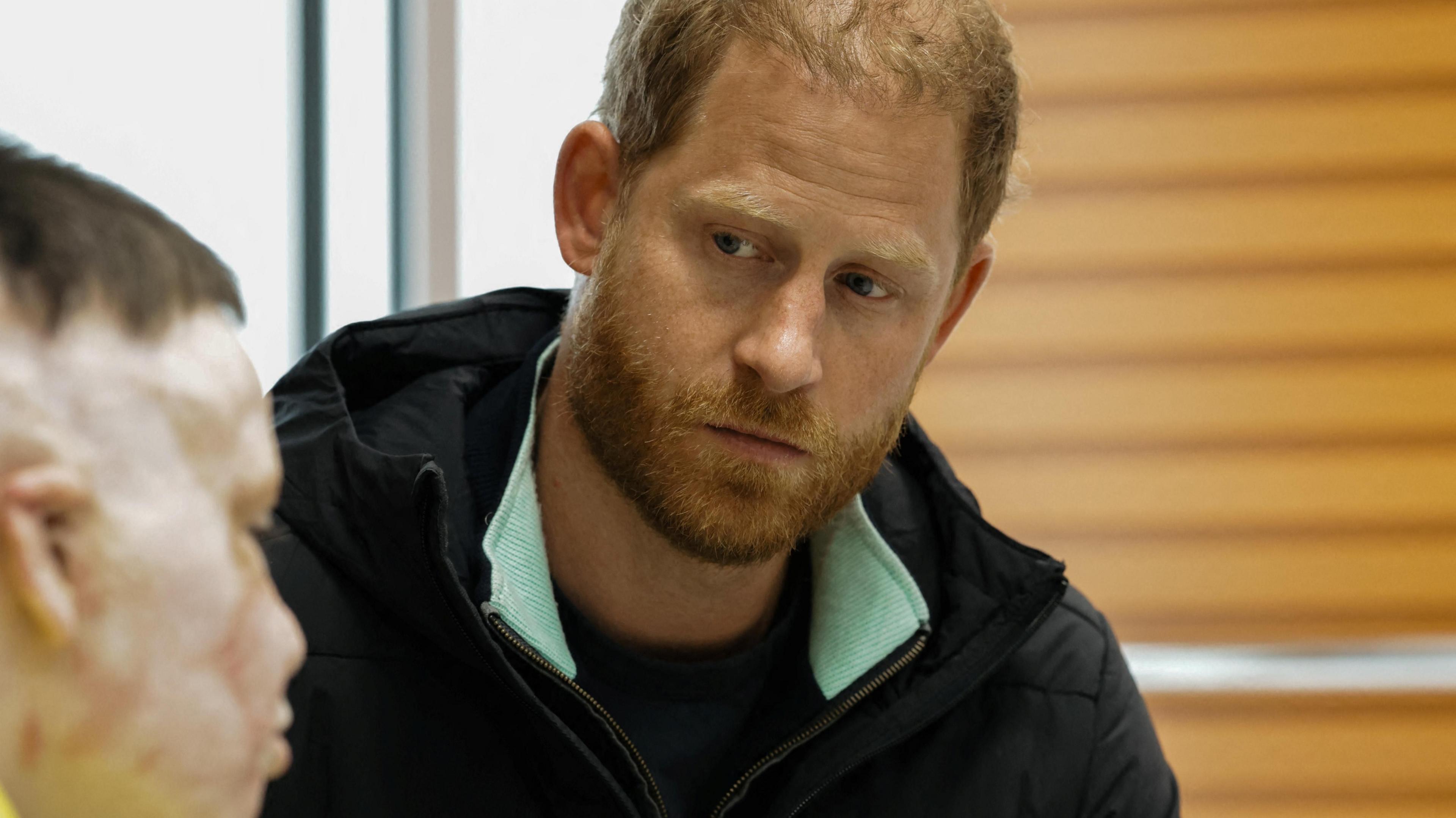'Further market turmoil' and 'Harry's secret visit'

This image of the Duke of Sussex visiting victims of war in Ukraine featured on a number of Friday's papers
- Published
The fallout from US President Donald Trump's tariff regime continues to dominate the front pages.
The Guardian, external talks of "market turmoil" as investors' expectations about the size of Chinese tariffs shift.
The Times says, external government ministers are increasingly pessimistic about securing an outright exemption from the taxes. It suggests the best-case scenario would be a continuation of the baseline 10% levy on UK goods being imported into the US. However, one unnamed government source is quoted as saying "things change by the day".
The President of the European Commission, Ursula von der Leyen, tells the Financial Times, external that the EU is prepared to deploy its most powerful trade measures if negotiations with Trump fail to end his tariff war against Europe. She says Brussels is open to taxing US digital companies if necessary. It could include a levy on digital advertising revenue, to hit US Big Tech firms such as Google and Meta.
The Duke of Sussex is pictured on the front of the Telegraph, external and the Daily Mail, external during what is described as a "secret" trip to Ukraine. It is reported that Prince Harry visited an orthopaedic clinic in the west of the war-torn country, where wounded civilians and soldiers receive treatment.
The Telegraph says the unannounced trip could be seen as a message from the prince to Trump, who has expressed his frustrations with Ukrainian President Volodymyr Zelensky in efforts to end the conflict.
In other news, the Guardian reports, external that more than a quarter of women in England are living with a serious reproductive health issue. Some 28% of respondents in a survey of 60,000 women - thought to be the largest of its kind - said they were suffering some kind of "reproductive morbidity". The paper says health experts have warned that systemic, operational, structural and cultural issues are preventing women accessing care.
According to the Times,, external anti-anxiety medication ending up in rivers and seas may be making salmon more reckless. A study in which the fish were given similar drugs showed salmon leaving the safety of shoals and heading out on their own - making them vulnerable to predators. The study, by scientists from Sweden, was published in the journal Science.

Sign up for our morning newsletter and get BBC News in your inbox.
